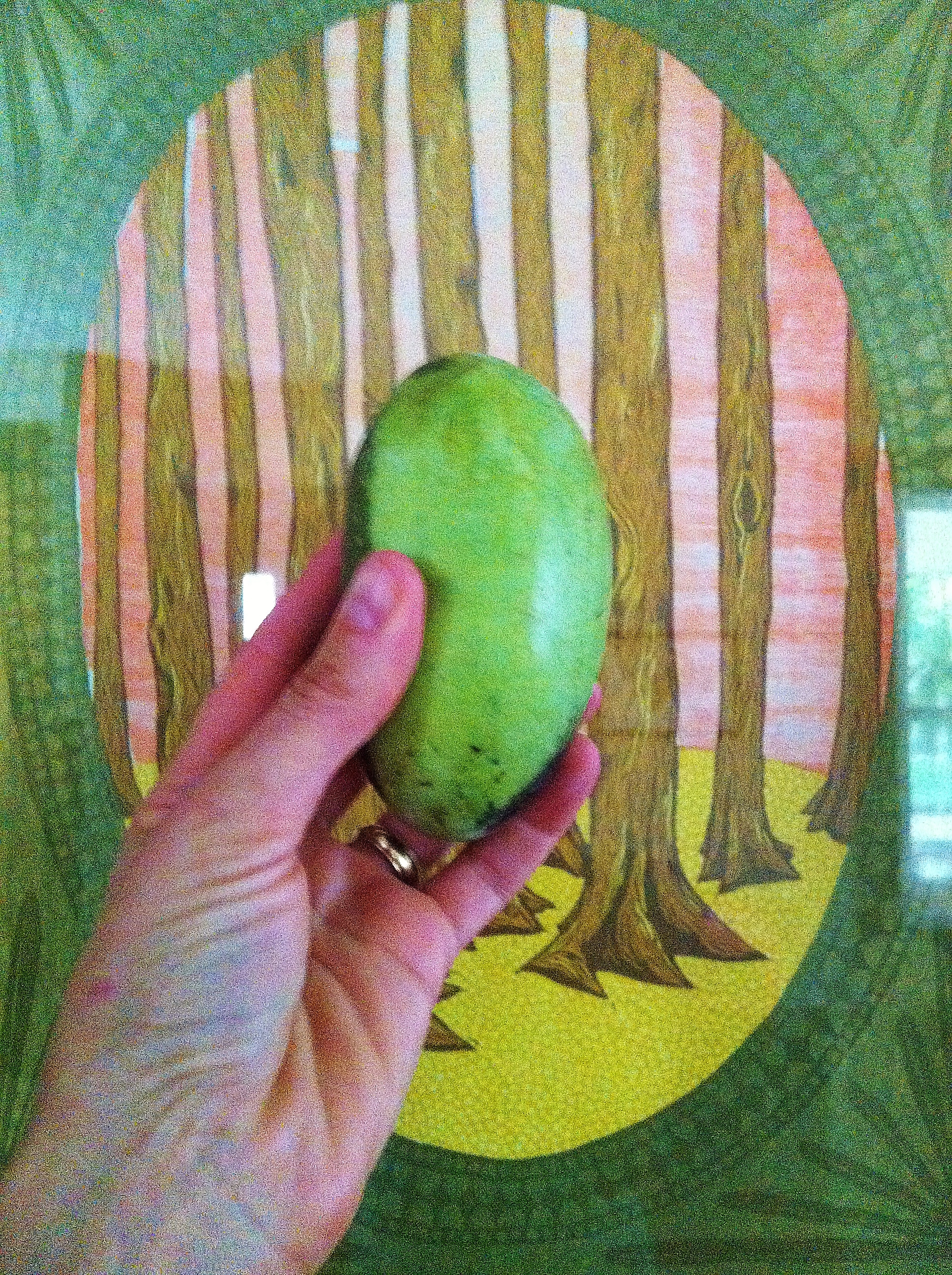Pawpaws have a powerful symbolic meaning to me as a reminder to move away from scarcity (the parts of my life that deplete me) and toward abundance (the things in my life that energize me, such as pawpaws). However, wild pawpaws also embody scarcity and abundance in the most literal fashion possible, and I have been dealing with this in practice for the past few weeks.
In only ten minutes, I can walk to spots in the neighboring woods that are currently crawling with pawpaws. On a good day--like yesterday--if I'm really hoofing it, I can bring home about five pounds of pawpaws after ten short minutes of active searching. When I'm in the right mindset, it's almost as if the pawpaws just jump right off the trees and into my hands. They are unavoidable. Making use of them all is impossible. I could canvass the region for pawpaws, buy multiple giant freezers, devote myself full-time to capturing and processing them all, and still not make a dent in the county's pawpaw population.
That wild seasonal abundance is what I consider a temporary infinite supply: the pawpaw paradox. Meanwhile, the mass of pawpaw pulp that time realistically allows me to collect is finite. If I'm lucky, I'll come out of this season with about six quarts of frozen pulp, collected and extracted by my own loving hands. It's work I'm happy to do, and work that I don't consider work, but it does menace me, this pawpaw paradox. I hoard my pawpaw pulp and am reluctant to thaw and use it because once it's gone, it's gone. What if it's February and I need some for recipe testing? What if next year turns out to be a bad pawpaw year? When your culinary spirit animal is a fruit that's not grown on a commercial scale to speak of, the going gets tough. Moderation is key.
Meanwhile, beautiful ripe pawpaws blacken and rot on the carpet of dry leaves out on the woods. This will happen for another two weeks, tops. We're spoiled by having everything we want at the snap of our fingers, be it produce, clothing, water, or visual and audio entertainment. The modern lives of the first-world bourgeoisie don't present us with much scarcity of anything, except for quiet time alone in nature. Luckily, the pawpaws don't need to be in season for us to access that.








